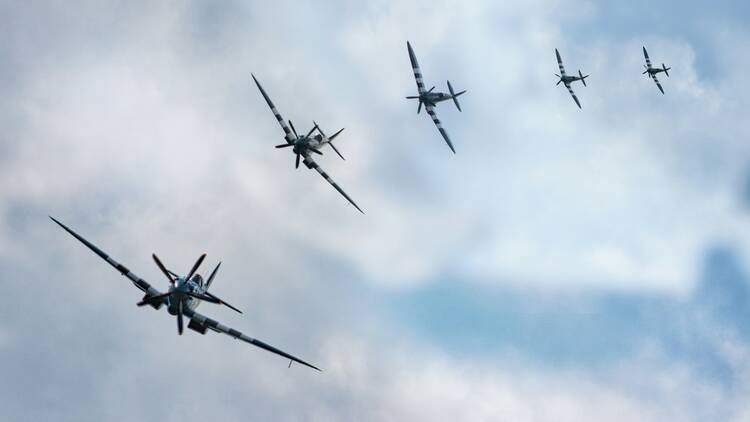Sitting outside a Starbucks with my wife one day I struck up a conversation with two brothers who, it turns out, were Palestinians from Gaza, one with his 6-year-old son. "I'm so sorry for what's happening there,” I said. “Do you have family still there? Are they all right?"
“My family is there,” said one of the men. “By now, most are dead."
Flicking his cellphone, he showed a video of his cousin, an American citizen. “He went home to be with my family in Gaza for a couple months,” he said. “Then the war broke out in October and he was trapped.”
The video showed a desperate young man, explosions shaking the apartment room he occupied. He screamed, “Get us out of here. My children are in danger! We need to stop this. Stop this violence. Bombs everywhere!”
"He died,” said my new acquaintance. “Bombs killed him. The American embassy was no help at all. Also, his three children. All are dead.”
Then he showed us photos of his cousin’s three children, one a baby. Bodies with sightless eyes lay side by side. All were dead.
There was nothing more we could say. We were all silent for a while.
He offered to buy us a second cup of coffee. I declined, I wished him well and he left our lives as abruptly as he’d entered it.
Here was a man seeking hope in dark despair. Our conversation led me to consider my own encounters, distant as they may have been, with war and violence.
During the Cold War I was an artillery officer with the 101st Air Assault Division. Not once during my entire summer training during which I learned to shoot at Fort Sill, Okla., nor the four years I spent with an artillery battalion at Fort Campbell, Ky., did we ever talk about what our shells did to actual people. We fired white phosphorus shells in training, but we did not see them cause horrors like inextinguishable burning flesh upon impact. Nor did we see the results of high explosives that end human lives, like the little Palestinian children from the photograph I had just seen.
No, we practiced calling in fire missions on targets. We called in and adjusted artillery shells to explode accurately on obsolete old tanks in a field. Never did we think of the effect these shells would have on human beings. From where we stood the tanks were tiny dots on the horizon.
I recall a discussion I had with an aviator. He mentioned how he “pickled his bombs” over a “target” and went back to the officer’s club for dinner that evening. Shooting artillery or dropping bombs at far away targets numbs us to the brutal effects of war. It allows our wars to go on and on, year after year, century after century. Perhaps to have your hands in the blood, to see the butchered man or child, might cause us to stop and think.
Once on a visit in Marburg, Germany, in 1976, I came upon a narrow cemetery, went in and noticed almost all the graves had the same carved date; the day the city was bombed. Among those dead civilian graves was that of a grandmother, 84 years-old. She shared the same name as a neighborhood friend of mine back in Missouri. On this odd occasion I experienced an utterly unexpected sense of loss. Here a bombing victim from the Second World War became a real person.
Later I read about the horror endured by a French writer, Gabriel Chevallier, from the trenches of World War I. He observed the same bodies being blown up again, and then again.
Trainloads of shells were delivered daily to the front during the slaughter Chevallier watched at the Somme offensive during that “war to end all wars.” We continue to expend seemingly endless amounts of ammunition during wars in the 21st century. A century after World War I, we have not found a lasting world peace. Gazans without even the bare shelter of trenches experience such shelling daily, over and over again, until only rubble remains to cover the dead.
When I bid the Palestinian man farewell, we said we would pray for one another. I would pray he finds courage and the hope he seeks. My fear is, without courage and hope, his 6-year-old nephew will grow up to see in the people of Israel only enemies who hurt his family, enemies who need killing.
Wars go on and on. The farther we are from its effects, the more brutally we behave. Brief displays of warmaking on television come with a viewer's warning. If a soldier shoots artillery, or drops bombs, based on a drone's photographic images, he or she does not really see anything but a burst of smoke and flame.
We who are veterans, who see the dead, maimed, and slaughtered, can be oracles of honesty. We can advise our neighbors, our families, our representatives that war is no adventure. Anything must be tried rather than going to war first. A child dead from a bombing brings no honor, resolves nothing, even fuels revenge. Perhaps we will be treated like Cassandra and ignored. But if we veterans know the true cost of war, we must act. With the knowledge that with memory comes obligation, we must tell the truth.








